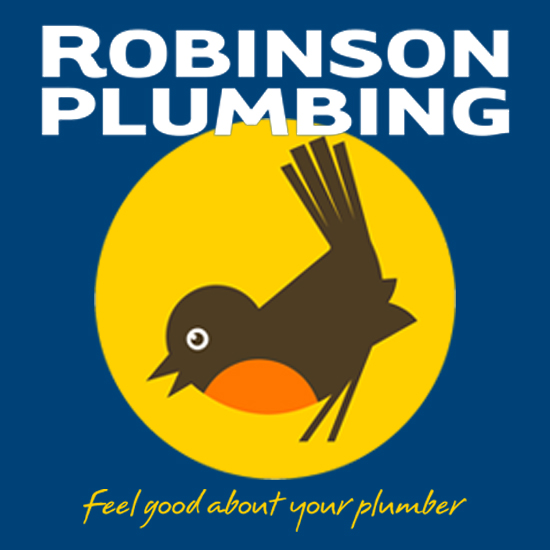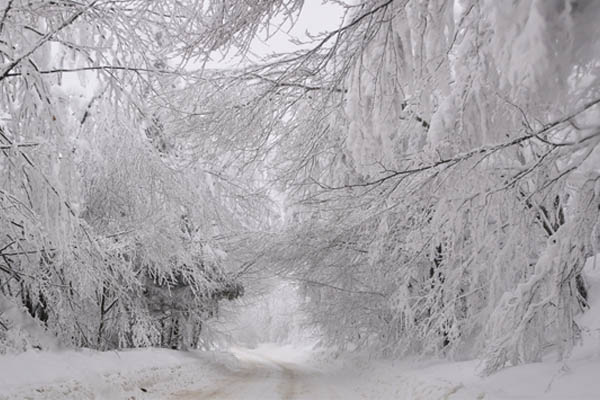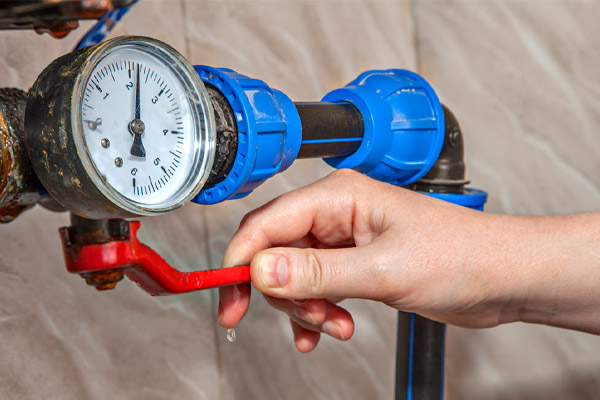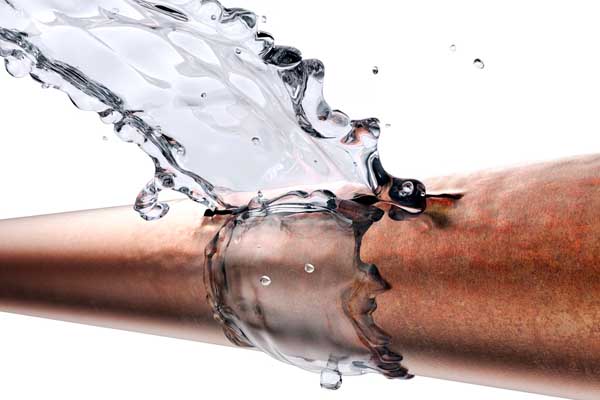We all understand the hassle of dealing with burst pipes during the coldest days of winter, right? It’s not just a matter of discomfort; this type of winter plumbing emergency can disrupt our daily lives and result in costly repairs.
What if you could prevent these issues before they even start?
With a comprehensive winter plumbing emergency kit and some savvy preventative tips, you can safeguard your home and enjoy peace of mind all season long.
In this article, we’ll uncover:
- the essential items every homeowner needs in their plumbing emergency kit
- share expert strategies for preventing common winter plumbing problems,
- explore when it’s time to call in a professional.
Let’s dive in and prepare you for the months ahead!
Why Winter Is Tough on Plumbing
Contents
Winter brings with it the threat of freezing temperatures, which can be particularly harsh on your home’s plumbing system. Water expands when it freezes, and this expansion can exert over 2,000 pounds of pressure per square inch, enough to cause almost any pipe filled with water to rupture.
The aftermath can be disastrous, leading to extensive water damage, potential home structural issues, and hefty repair costs. Being prepared with a specialized Winter Plumbing Emergency Kit can mitigate these risks, providing quick solutions and preventing small issues from escalating.
Core Components of the Winter Plumbing Emergency Kit
To combat these issues effectively, every homeowner should have an emergency kit stocked with the following essential items:
- Pipe Insulation: This foam or rubber insulation wraps around pipes to keep them warm and prevent freezing. It’s particularly crucial for pipes in unheated spaces, like basements or garages. Proper use involves measuring pipes and cutting the insulation to size, ensuring a snug fit without gaps where cold air can reach the pipe.
- Heat Tape: Heat tape is an electrical system used to prevent pipe freezing. It can be wrapped around or run alongside pipes. However, it’s essential to use products approved by testing organizations and follow the manufacturer’s instructions closely to prevent fire hazards.
- Plunger: A reliable plunger is invaluable for addressing clogs, a common issue during winter due to increased usage of facilities. Different types—like flange and cup plungers—are designed for toilets and sinks, respectively. Using a plunger involves creating a tight seal and using forceful, rapid motions to dislodge clogs.
- Pipe Wrench: A sturdy pipe wrench is crucial for tightening and loosening nuts and fittings on your piping, especially if a leak occurs. Choose a wrench that fits comfortably in your hand, and always turn it toward you, ensuring a tight grip and avoiding pipe damage.
Additional Tools and Supplies
Other helpful items in your kit should include:
- An emergency flashlight and batteries in case a situation arises at night or in a dark, unlit area.
- Duct tape for a wide range of quick fixes, including temporarily sealing leaks.
- A bucket to catch water from leaks or serve as a temporary stand-in if a fixture is out of order.
Emergency Water Shut-Off Know-How
Knowing how to shut off your water is critical in a plumbing crisis. Locate your home’s main water shut-off valve and test it before winter arrives. In an emergency, turning off this valve will prevent extensive water damage while you address the issue or wait for professional help.
Temporary Patching & Sealants
In the event of a leak, temporary patching compounds and sealants can provide a quick, though temporary, fix. These products can be applied to a leaky pipe to prevent water damage until a plumber arrives for a permanent solution. Always follow the manufacturer’s instructions to ensure effective application.
Portable Space Heaters
Portable space heaters can help keep vulnerable areas of your home, like unheated basements or garages, warm during extreme cold spells. This supplemental heat can prevent pipes from freezing. However, they should be used cautiously—keep them away from flammable materials, and never leave them unattended.
Tips for Preventing Winter Plumbing Issues
While having a Winter Plumbing Emergency Kit is essential for responding to issues, the best approach is to prevent these emergencies from occurring in the first place. Here are proactive measures every homeowner should take to safeguard their plumbing during the winter months:
- Regular Inspection of Pipes: Routine checks of your home’s plumbing system, particularly in unheated areas like crawl spaces, attics, and garages, are vital. Look for signs of leaks or weaknesses and ensure pipes are adequately insulated. An inspection by a Robinson Plumbing professional before the season sets in can help catch any issues before they escalate.
- Draining Outdoor Faucets and Hoses: Water left in outdoor hoses or faucets can freeze and expand, causing the connected pipes inside your home to burst. Make it a practice to drain outdoor plumbing fixtures before freezing temperatures arrive. Disconnect hoses, drain them, and store them indoors if possible. Shut off the water supply to outdoor faucets and drain them to prevent freezing.
- Keeping Indoor Temperatures Consistently Warm: Maintain a consistent temperature in your home, even when you’re away. Never let the internal temperature drop below 55 degrees Fahrenheit, as cold indoor temperatures can lead to freezing pipes. Open cabinet doors under sinks to allow warm air to circulate around the plumbing.
- Letting Faucets Drip Slightly During Extreme Cold: In extreme cold, even a trickle of water can help prevent pipes from freezing. Letting faucets drip slightly—especially those connected to pipes in unheated or uninsulated areas—keeps water moving, thereby reducing the build-up of pressure in the pipes, even if a section of the pipe freezes. Remember, every faucet doesn’t need to be open, only those served by exposed or vulnerable pipes.
Implementing these preventative strategies can significantly reduce the risk of plumbing emergencies. However, should you require assistance or wish to schedule a professional inspection, don’t hesitate to contact Robinson Plumbing. Our team is equipped to ensure your home is prepared to face the winter season confidently.
When to Call a Professional Plumber
While your emergency kit is a frontline defense, some situations require professional intervention. If you experience a burst pipe, major leak, or any issue beyond your understanding, it’s crucial to contact a professional immediately. Robinson Plumbing’s expert team is on call for just such emergencies, offering swift, reliable assistance when you need it most.
Conclusion
Winter can be a challenging time for homeowners, but with a well-prepared Winter Plumbing Emergency Kit, you can navigate the season with confidence. Remember, while the kit is designed for emergencies, it’s no substitute for professional maintenance and repair. Regular inspections by Robinson Plumbing can help identify potential issues before they escalate, keeping your home safe and your plumbing in optimal condition.
Call Robinson Plumbing For Superior Plumbing Services

If you find yourself facing a plumbing emergency this winter, don’t hesitate to contact Robinson Plumbing for quick, expert service. And if you’re unsure about your plumbing’s winter-readiness, schedule a preventative maintenance appointment today. Stay safe and warm this winter with Robinson Plumbing, your local experts committed to your home’s plumbing health.
We proudly offer the most affordable and best plumbing services in the Lehigh Valley area. Our plumbers all have the proper licenses and expertise to ensure your satisfaction. All of our work comes with a guarantee. Contact Robinson Plumbing today and schedule your free estimate.
Call us today at (610) 351-9889 or contact us for any questions that you might have! Click the link to view our service area.
Related Articles:
- How Do You Winterize Plumbing In A Vacant House?
- The Dangers Of Hiring An Unlicensed Plumber
- What Causes Pipes To Burst When They Freeze?
- The Importance Of Finding Your Water Shutoff Valves
- Should You Insulate Your Water Pipes?



